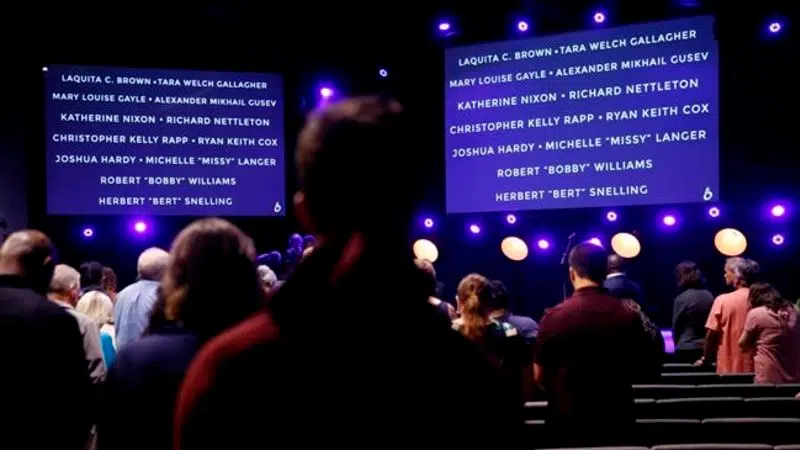
Virginia Beach shines light on victims, not mass shooter
VIRGINIA BEACH, Va. — The victims of America’s latest mass shooting had been dead for less than a day when police and city officials released a detailed presentation with their names, photos, job titles and the cities or towns in which they lived.
In all, 12 people — 11 of them city employees — were killed by the shooter who opened fire inside a municipal building.
Far less was revealed Saturday about the man who authorities say carried out the shootings. There was no photo. And authorities promised to utter his name only once: “DeWayne Craddock,” a 40-year-old engineer who worked in the city’s utilities department.


